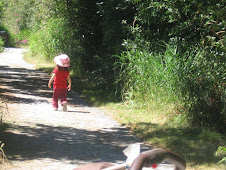Many realize after retirement that their social life was tied up with their professional life. This is particularly true of men who sometimes don't have close male friends. As a result they are lonely and have feelings of isolation. Planning for retirement is necessary for mental, psychological and financial reasons. But often people spend more time planning a two week vacation than they do for their retirement.
Crucial to retirement is to have a social network, a purpose, to continue lifelong learning and to have interests and/or hobbies. It will be vital to cultivate friends to do things with, i.e.: golfing, walks, playing bridge or just socializing. Social interaction is the main difference between enjoying retirement or not; or being happy, healthy and active.
Some delay retirement because of insufficient retirement funds, or at least the fear that there won't be enough money to live as they want to and perhaps be able to travel as well. Planning to be financially comfortable in retirement should be started young - in your late twenties or early thirties at the very latest.
The retirement phase of life is a different lifestyle. How do you handle leisure? Do you get bored easily? What can you do to derive satisfaction from your retirement years? Some couples find too much togetherness in their relationships can present problems. Both should develop their own interests. It is necessary to be involved in life so time doesn't drag. Those who are the most satisfied in retirement have found things to do outside the home that are meaningful to their life. And they are the ones who are maintaining a healthy lifestyle by being physically active.
For those who have planned for their retirement and are financially secure, travelling can be satisfying and educational. Travelling is being actively involved in life and it is meeting others who have similar interests. There are many different types of travel options - enough to meet all individual tastes and styles.
Others who have planned for their retirement and have looked forward to it, are enjoying a lifestyle where they have freedom and time to spend with their friends, to enjoy activities they previously had little time for such as pursuing educational interests, learning an instrument, a new language or becoming more physically active. Perhaps they have always wanted to run a marathon - maybe now is the time to do it. Possibly they wanted to volunteer, spend more time with grandchildren, write their memoirs, get involved in genealogy, plant a garden or have more time for reading. There is no limit to what you can do if you have the time to do it.
A successful retirement depends on being adequately prepared. It is also necessary to determine what you want to do in this phase of your life that will give you purpose. But before you take that step, ensure that you have a strong social network in place. After that, enjoy your retirement and all the things you'll be able to do with the extra time you have. Retirement should, and can be, a very happy phase in your life.




















































































